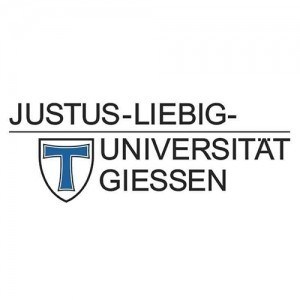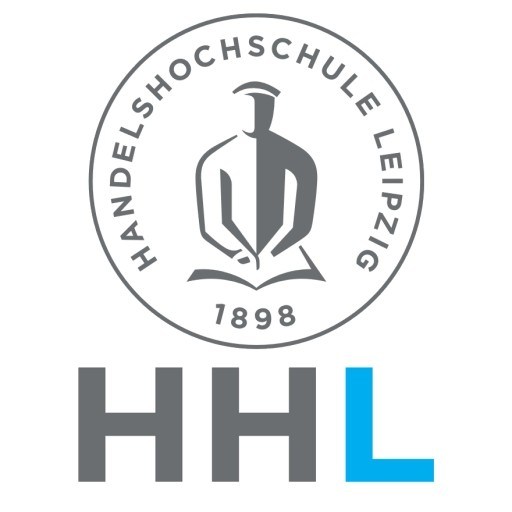Photos of university / #btucs
Heritage Conservation and Site Management at Brandenburg University of Technology Cottbus-Senftenberg offers a comprehensive interdisciplinary education designed to prepare students for the preservation, restoration, and sustainable management of cultural heritage sites. The program combines theoretical knowledge with practical skills, enabling graduates to assess, plan, and implement conservation projects that respect historical integrity while adapting sites for contemporary use. Students explore various aspects of heritage conservation, including architectural preservation, archaeological site management, environmental considerations, legal frameworks, and community engagement. The curriculum integrates courses in history, architecture, engineering, and environmental sciences to provide a holistic understanding of heritage sites within their cultural and societal contexts. Practical training is emphasized through project work, field trips, and internships with heritage organizations, providing real-world experience. Graduates are equipped to work in diverse sectors such as governmental agencies, conservation institutes, museums, private consulting firms, and international organizations dedicated to cultural heritage preservation. The program aims to foster critical thinking, technical competence, and ethical responsibility, ensuring that future professionals can effectively balance preservation goals with the needs of modern communities. Through a combination of lectures, seminars, hands-on projects, and research, students develop the necessary skills to contribute to the sustainable management of cultural assets, ensuring their protection for future generations. The program emphasizes international best practices and promotes awareness of global heritage issues, preparing students for careers in an increasingly interconnected world. With a strong focus on research and innovation, the Heritage Conservation and Site Management program at BTU Cottbus-Senftenberg provides a solid foundation for those passionate about preserving cultural history and making a meaningful impact in the field of heritage conservation.
Educational organisation
The Master's programme "Heritage Conservation and Site Management" includes:- the mandatory modules "Academic Work and Research Methodology", "Heritage Conservation", "Archaeology", "Introduction to Heritage Site Management", "Principles of Tourism and Visitor Management", comprising 30 credits according to ECTS
- two case studies comprising 24 credits according to ECTS
- compulsory elective modules comprising 36 credits according to ECTS
- the Master's thesis and its oral examination, comprising 30 credits according to ECTS
The language of instruction is English. Arabic and German language courses can be offered as part of the programme.
The standard period of study is four semesters (two academic years). The students are required to gain 120 credits according to ECTS.
The programme starts in the winter semester only.
The programme includes a mandatory mobility phase of at least one semester at the partner university, according to the following structure:
- semester 1: at BTU Cottbus-Senftenberg or Helwan University
- semester 2: joint semester at BTU Cottbus-Senftenberg
- semester 3: joint semester at Helwan University
- semester 4: Master's thesis at BTU Cottbus-Senftenberg or Helwan University
Study abroad unit(s)
Participants from the University of Helwan spend the second semester of the programme at the BTU Cottbus-Senftenberg, while participants from the BTU Cottbus-Senftenberg spend the third semester at the University of Helwan.Internships
Although internships are not required as part of the programme, they are highly recommended. With our long-term experience in the field of cultural heritage as well as through the active student body, students can benefit from many interesting contacts when organising their internships.Forms of assessment
The mode of assessment varies for each module. Assessment via essays and presentations in class is most common. Only a few classes are assessed through written exams.Course objectives
Graduates of the joint Master's programme in Heritage Conservation and Site Management will be qualified to work in a broad range of heritage institutions. The programme is focused on transferring knowledge and methodologies necessary for the administration and management of archaeological sites, which shall include the academic fields of conservation strategies and methods, strategic heritage management and planning, visitor management, presentation and interpretation as well as general leadership skills and knowledge of the tourist sector and related activities. The variety of these subjects will endow graduates with the multidisciplinary skills required in the significance assessment, management, and protection of archaeological sites.Language requirements
TOEFL iBT min. 80 points, Cambridge Certificate in Advanced English (CAE) min. grade B, Cambridge Certificate of Proficiency in English (CPE) min. grade C, IELTS min. 6.5 or equivalentAcademic requirements
Applicants must hold a first university degree (minimum Bachelor's degree) in archaeology, tourism, architecture, conservation or history, or equivalent qualifications. Equivalence is determined by the examination board on the basis of the application documents handed in by the candidate.Enrolment fees
Students are required to pay an enrolment fee of approx. 259 EUR per semester. This fee includes some services offered by the student services (Studentenwerk Frankfurt/Oder) and the BTU student council. The fee also pays for a semester ticket, which permits free travel on all public transport with VBB in the state of Brandenburg and in Berlin as well as free use of the regional train (RE 18 and 15) to Dresden.Costs of living
The cost of studying abroad can differ significantly from studying in your home country. We recommend that students budget between 550 to 700 EUR per month for accommodation, health insurance, living expenses, books, etc. Of course, this amount depends entirely on the individual lifestyle.Monthly costs:
- rent (incl. utilities): 170-280 EUR
- groceries: 150 EUR
- health insurance, medical fees, medication: 80 EUR
- miscellaneous (clothing, study materials, other activities): 100-200 EUR
You will not need to pay for public transport in Berlin and Brandenburg. The semester ticket for buses and trains operated by VBB is already included in the semester fee.
Job opportunities
There are job opportunities both in town and on campus. Nevertheless, please do not come to Germany expecting to be able to finance your entire studies by working. The study load is high, and it is not always easy to find a part-time job. Non-EU citizens are allowed by law to work for a maximum of 120 days per year. Students who are employed by the university in one of the institutes or departments ("Studentische Hilfskräfte") are exempt from this regulation, but other restrictions apply.Funding opportunities within the university
The International Office is pleased to be able to grant a limited number of scholarships for foreign students. These include exchange scholarships for students from partner universities, scholarships for completion of studies, and scholarships involving tutorial work.http://www.b-tu.de/en/international/incoming-students/during-studies/scholarship
Arrival support
The university's International Relations Office assists foreign students with registration and enrolment procedures at the university upon arrival. It also holds an information session at the beginning of each semester covering administrative procedures and cultural events that are offered throughout each semester. The BTU holds an orientation week each October prior to the beginning of classes. During this week, each faculty offers orientation sessions. New students are provided with detailed programme information as well as academic advice and have the opportunity to meet professors and other students at these orientation sessions. The student organisation, OTIWO, offers cultural events throughout this week. Attendance is highly recommended! The university's tutor group "BTU Buddies" and the student council are there to assist English-speaking students in the international programmes. For example, they will accompany the students when registering for health insurance and with municipal authorities.Services and support for international students
To ensure that international students feel comfortable on the BTU campuses and around the cities of Cottbus and Senftenberg, the Student Activities Office, run by the International Relations Office, offers services such as cultural events, excursions, job compass, home stays with German families, and much more.For more information, please consult this website. See: https://www.b-tu.de/en/international/incoming-students/during-studies
Furthermore, intensive guidance is provided by professors, lecturers, and programme officers within the study programmes.
Accommodation
Most students live in on-campus student residences. Rooms are mostly either single with a shared kitchen and bathroom or one-room apartments. Prices range from 190 to 270 EUR. More information on accommodation is available at http://www.studentenwerk-frankfurt.de.Private off-campus accommodation is also available. You can rent your own apartment or share with other students. Private accommodation can be found on the Internet at: https://www.b-tu.de/en/international/incoming-students/arrival.







